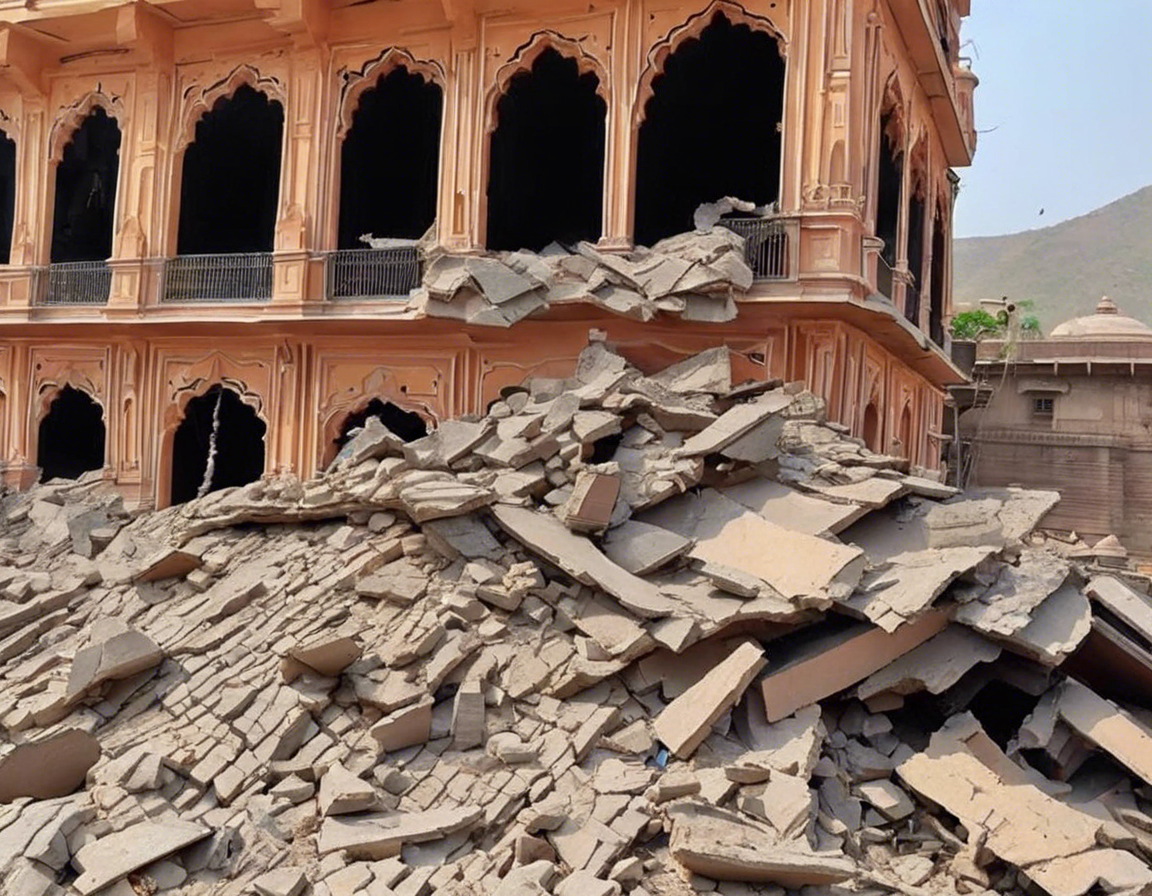Natural disasters have the potential to strike at any moment, whether anticipated or unexpected. Today, Jaipur—the picturesque capital city of the Indian state of Rajasthan—encountered a significant earthquake that has left many residents shaken and seeking information about the event. Earthquakes, being one of the most unpredictable natural calamities, can instill fear and uncertainty among those affected. Let’s delve into the details of the recent earthquake in Jaipur to understand the impact it has had on the city and its residents.
Understanding Earthquakes:
Earthquakes are the result of a sudden release of energy in the Earth’s crust that creates seismic waves. These waves cause the ground to shake, sometimes violently, resulting in the displacement of the Earth’s surface. The magnitude of an earthquake is measured using the Richter scale or the moment magnitude scale, which quantifies the energy released at the source of the earthquake.
The Jaipur Earthquake:
The recent earthquake in Jaipur struck at [exact time] with a magnitude of [magnitude]. The epicenter of the earthquake was [location], and it was felt across a [distance] radius. The tremors were reportedly felt at [nearby cities and towns], causing panic among residents who rushed out of their homes and buildings seeking safety.
Impact on Jaipur:
The earthquake had a profound impact on Jaipur, leading to [number of casualties] casualties and injuring [number of people] individuals. The damage to property was extensive, with several buildings suffering structural damage and collapsing in some areas. The local authorities have been swift in their response, coordinating rescue and relief efforts to assist those affected by the earthquake.
Safety Measures During an Earthquake:
Given the unpredictability of earthquakes, it is essential to be prepared at all times. Here are some safety measures to keep in mind during an earthquake:
1. Drop, Cover, and Hold On:
During an earthquake, drop to the ground, take cover under a sturdy piece of furniture, and hold on until the shaking stops. This will help protect you from falling objects and debris.
2. Stay Indoors:
If you are indoors when an earthquake strikes, stay inside and find a safe spot away from windows, glass doors, and exterior walls. Avoid using elevators during an earthquake.
3. Evacuate if Necessary:
If you are in a high-rise building, it is advisable to evacuate if the shaking is severe. Use staircases instead of elevators and follow the evacuation protocols in place.
4. Have an Emergency Kit:
Prepare an emergency kit with essential supplies such as food, water, medications, first aid supplies, and important documents. Keep this kit in an easily accessible location.
Frequently Asked Questions (FAQs):
1. How often do earthquakes occur in Jaipur?
Earthquakes in Jaipur are relatively rare, but the city lies in a seismically active zone, making it susceptible to seismic activity.
2. Can we predict when an earthquake will occur?
Unfortunately, earthquakes cannot be predicted with precision. Seismologists can forecast the probability of an earthquake occurring in a particular region but cannot determine the exact time and date.
3. What should I do if I am outdoors during an earthquake?
If you are outdoors during an earthquake, move to an open area away from buildings, trees, and utility wires. Drop to the ground and cover your head and neck until the shaking stops.
4. How can I help in earthquake relief efforts?
If you wish to contribute to earthquake relief efforts, consider donating to reputable organizations providing aid to affected regions. You can also volunteer your time or resources to support relief initiatives.
5. Are aftershocks common after a major earthquake?
Aftershocks are common after a major earthquake and can continue for days, weeks, or even months. It is essential to stay alert and prepared for potential aftershocks following a significant seismic event.
Conclusion:
The recent earthquake in Jaipur serves as a stark reminder of the unpredictable nature of natural disasters and the importance of being prepared for such events. As residents and authorities work towards restoring normalcy in the city, it is crucial to prioritize safety, preparedness, and resilience in the face of future calamities. By staying informed, following safety guidelines, and supporting relief efforts, we can mitigate the impact of earthquakes and work towards building more resilient communities.
